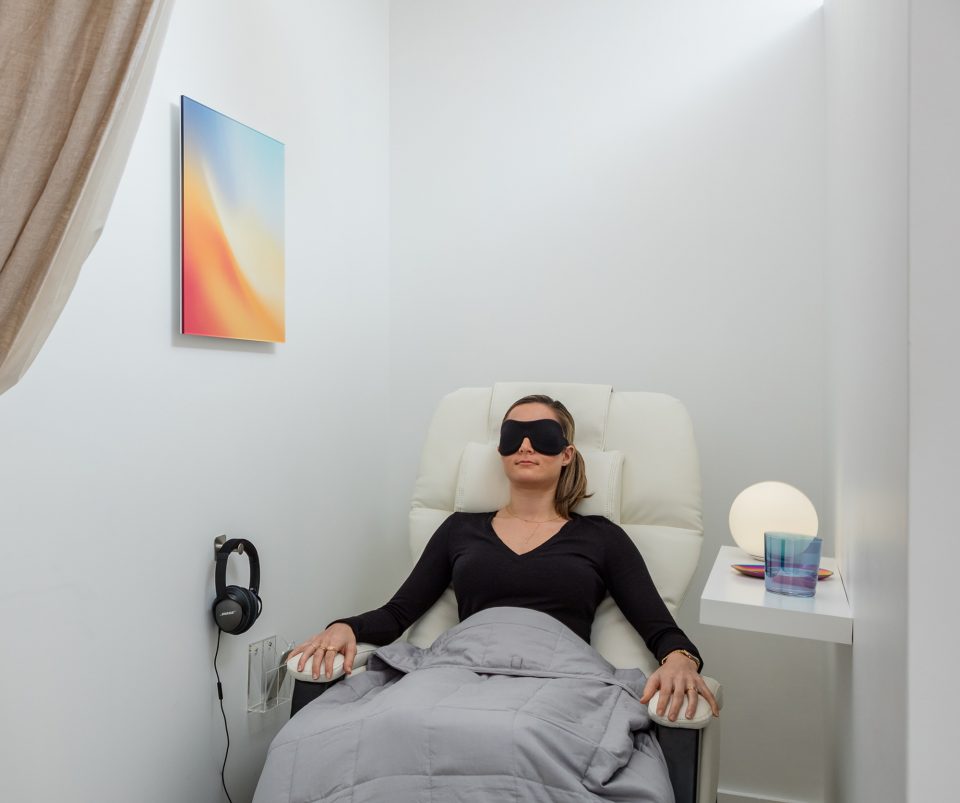Wellness
Creating Qualified Trip-Sitters a Challenge for Psychedelics Therapy
Questions remain about how much to train and how much to pay trip-sitters.
The post Creating Qualified Trip-Sitters a Challenge for Psychedelics Therapy…


In the psychedelics world, infrastructure is becoming a new business focus.
The Oregon Psilocybin Services section within the Oregon Health Authority Public Health Division’s Center for Health Protection expects new psilocybin service centers to open their doors to clients early this year and for licensed facilitators to begin offering psilocybin services later in 2023.
While there are many questions that the rollout hopefully will answer over the next year or so about how the infrastructure will be developed, one of the biggest questions is about the so-called trip sitter—the facilitator who sits with someone experiencing an 8-hour psilocybin session.
Who that person should be, what they should they be paid, and how they should be trained are arguably some of the biggest tests for the Oregon legalization effort yet, with industry thought leaders, psychiatrists, and psilocybin service organizers taking sides as the world watches what happens next.
Oregon’s Measure 109, which legalized medical psilocybin in 2020, established the Oregon Psilocybin Advisory Board to advise and make recommendations to the Oregon Health Authority (OHA) about psilocybin, including recommendations regarding the requirements, specifications, and guidelines for providing psilocybin services to clients, public health and safety standards, industry best practices, education, and training.
Under the measure, the OHA determines who is eligible to be licensed as a facilitator, including what qualifications, education, training, and exams are needed. It then is expected to create a code of professional conduct for facilitators.
Currently, facilitator training consists of 160 hours of training, generally over a six-month period, 120 hours of which is the core curriculum.
“It’s really what you would think of as traditional classroom education,” according to Mason Marks, a lawyer and former member of Oregon’s Psilocybin Advisory Board. “Then there’s 40 hours of hands-on practicum training which ideally involves administering actual psilocybin to clients.”
The Oregon Psychiatric Physicians Association opposed Measure 109, saying treating patients with mental health and substance use disorders is complex, due to the fact that more than half of these patients also have an underlying physical illness.
“Given our limited understanding of psilocybin’s effects on patients and how it may interact with other medications, it is dangerous to allow practitioners—especially those with no medical training—to dispense a controlled substance,” the organization said in a statement.
Others say that the process is akin to making Oregonian patients “guinea pigs.”
High Cost, Unknown Pay
For a facilitator to qualify, they must be 21 or older, be an Oregon resident with a high school diploma or GED, must complete training at a facility with an approved curriculum, and then pass an exam administered by Oregon Psilocybin Services. Licensing costs $150 to apply, and if approved, a $2,000 annual licensing fee.
That doesn’t include the cost of the training program.
What facilitators will be paid is still being determined, but a similar position at a Mindbloom ketamine clinic pays $61,700-$78,100 a year.
Course costs in the facilitator training companies come in a variety of ranges.
Portland-based InnerTrek, one of 20 facilitator-training companies with an OHA-approved curriculum, is now training around 100 students to be licensed facilitators. The $8,500 course teaches trip sitters to create a safe space for dosing sessions and how to be a reassuring, but nonintrusive, presence.
Another facilitator training company is the Synthesis Institute, which offers nine modules in its 13-month psychedelic practitioner core training coursework. The course costs $12,997.
Other examples include:
- The Alma Institute, $11,750
- The Berkley Center for the Science of Psychedelics, $12,000
- The Changa Institute, $9,950
How Much Experience is Enough?
“In terms of things that we would prefer to see is those (facilitators) that have experience with psychedelics,” Rachel Aidan, CEO of Synthesis, told Psychedealia. Aidan is a researcher who had been working underground for 20 years before joining Synthesis. “However we can’t mandate that you have to have experience with a federally illegal substance.”
Though some would argue that these facilitators, even after training, could not be ready to guide someone through the profound mind, body, and spirit effects of a psilocybin session – especially if they have not experienced psychedelics themselves – licensed psychiatrists generally are prohibited from trip-sitting because of the federally illegal status.
But there’s more to consider, according to the official position statement of the American Psychiatric Association, which takes a swipe at Oregon’s measure: “There is currently inadequate scientific evidence for endorsing the use of psychedelics to treat any psychiatric disorder except within the context of approved investigational studies. … Clinical treatments should be determined by scientific evidence in accordance with applicable regulatory standards and not by ballot initiatives or popular opinion.”
Aidan said that one of the most dangerous myths she hears about facilitating a patient is that it’s 10 years of therapy condensed into eight hours. “It’s a very important process. And so I think it’s making sure we really try to educate folks up front on what the whole point of this experience is, and how to remain safe, supported, and connected throughout,” she said.
“It’s not a magic mushroom, it’s not a magic pill. There’s a lot of risk here. We know very little, there’s not a lot of research, it is slow moving. So we need to go slow,” she said. “This training right now is kind of like an associate’s or bachelor’s degree. It’s very 101. We’re going to need to get into specialty training because trauma is everywhere, such as PTSD, addiction, end of life. So we’re pretty broad right now.”
The post Creating Qualified Trip-Sitters a Challenge for Psychedelics Therapy appeared first on Green Market Report.
public health
therapy
psilocybin
ketamine
psychedelic
ptsd
end of life

Lion’s Mane Mushroom: History, Benefits, and Adaptogen Properties
Explore the intriguing world of Lion’s Mane Mushroom in our comprehensive guide. Dive into its unique properties, historical significance, and myriad health…
AI can already diagnose depression better than a doctor and tell you which treatment is best
Artificial intelligence (AI) shows great promise in revolutionizing the diagnosis and treatment of depression, offering more accurate diagnoses and predicting…
Reasons You should Get this: Neptune Wellness Solutions Inc (NASDAQ:NEPT), WeTrade Group Inc. (NASDAQ:WETG)
NEPT has seen its SMA50 which is now -9.28%. In looking the SMA 200 we see that the stock has seen a -92.25%. WETG has seen its SMA50 which is …
The…













